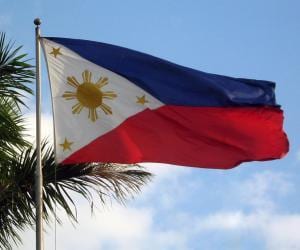Philippines to consider new 5% tax on POGOs

A lawmaker in the Philippines has proposed a new 5% tax on revenue generated by the country’s licensed online gaming operators, with the move securing the backing of the country’s finance secretary Carlos Dominguez III.
The bill filed in the Philippines House of Representatives by Representative Joey Salceda seeks to have Philippines Offshore Gaming Operators (POGOs) and their service providers register as resident corporations, requiring them to pay the 5% tax.
The bill also sets out a $10,000 monthly tax on table games, and a $5,000 monthly fee levied on random number generator (RNG) based games such as slot machines. It would also set out a $1,000 presumptive tax on income, rather than an assessment based on actual earnings.
POGOs currently pay a $100 levy on RNG games, and $40,000 a month for sports betting activities.
While Dominguez said he had not yet read Salceda’s proposal he believed it was a good idea. However, he added, operators were already paying a 5% franchise tax on revenue.
Salcedo's bill is currently being scrutinised by the House Ways and Means Committee, which he chairs.
The country’s Bureau of Internal Revenue (BIR) has collected PHP1.63bn (£24.9m/€28.7m/$31.9m) in withholding taxes from POGOs between January and August 2019, a significant increase on previous years. In 2017 these businesses paid just PHP175m, and PHP579m in 2018.
With 218 POGOs registered with the BIR, employing 108,914 foreign workers, the Philippines authorities have stepped up efforts to ensure all are paying taxes this year, shuttering those that fail to do so.
This saw Great Empire Gaming and Amusement Corporation (GEGAC) temporarily closed for failing to pay correct taxes, forcing the company to make an initial payment of PHP250m before it agreed to settle the PHP1.05bn outstanding in three instalments to resume operations.
Last week, on 17 October, the BIR also padlocked the two offices owned by Altech Innovations Business Outsourcing after the company failed to register as a value-added tax (VAT) payer, in violation of the country’s National Internal Revenue Code.
It comes after the issuance of new POGO licences was halted until the end of 2019, amid concerns related to illegal activity by operators, and allowing for a review of existing contracts.
However, despite pressure from China, the Philippines has refused to ban online gaming outright, citing the economic benefits it brings to the country.
